ZINNAT 125mg Tablets are an antibiotic medication prescribed to treat bacterial infections. Discover dosage guidelines, potential side effects, and its efficacy in combating various infections. Understand how ZINNAT works and precautions for safe and effective usage.
What is ZINNAT 125mg Tablets?
ZINNAT 125mg Tablets contain cefuroxime (as axetil), an antibiotic effective against bacterial infections. Learn its uses, dosage, and safety for effective treatment.
Understanding the Active Substance: Cefuroxime (as axetil)
Cefuroxime, found in ZINNAT 125mg Tablets as axetil, is a cephalosporin antibiotic effective against a wide array of bacterial infections. It functions by impeding bacterial cell wall construction, a critical process for bacterial survival and proliferation. By disrupting this formation, cefuroxime weakens the cell walls, rendering the bacteria vulnerable to destruction and eventual death. Its versatility makes it valuable in treating respiratory, skin, and urinary tract infections. Cefuroxime’s broad-spectrum action inhibits bacterial growth, offering reliable relief from symptoms and facilitating the body’s natural healing mechanisms, ensuring a swift recovery from bacterial infections.
How Does ZINNAT 125mg Work?
ZINNAT 125mg Tablets operate through their active ingredient, cefuroxime (as axetil), a potent cephalosporin antibiotic. This medication works by disrupting the synthesis of bacterial cell walls, a vital process for bacterial survival and replication. By hindering this construction, cefuroxime weakens the integrity of bacterial cell walls, leading to their eventual breakdown and the demise of the bacteria. ZINNAT’s broad-spectrum efficacy enables it to combat various bacterial infections, including respiratory tract, skin, and urinary tract infections. Its ability to impede bacterial growth aids in alleviating symptoms and promoting recovery, ensuring an efficient and comprehensive treatment for bacterial infections.
Indications and Approved Uses in the UAE
In the UAE, ZINNAT 125mg Tablets, containing cefuroxime (as axetil), are approved for various indications and uses, owing to its efficacy against bacterial infections. Its approved uses encompass:
- Respiratory Tract Infections: ZINNAT treats acute bacterial sinusitis, pharyngitis, and tonsillitis.
- Otitis Media: It’s effective against middle ear infections, especially acute otitis media.
- Lower Respiratory Tract Infections: ZINNAT aids in managing bacterial bronchitis and pneumonia.
- Skin and Soft Tissue Infections: It’s prescribed for bacterial skin infections, including cellulitis and impetigo.
- Urinary Tract Infections: ZINNAT combats bacterial infections of the urinary tract, such as cystitis.
- Uncomplicated Gonorrhea: It’s also used in the treatment of uncomplicated gonorrhea.
ZINNAT’s broad-spectrum action and effectiveness against a range of bacterial infections make it a versatile and valuable medication for various conditions in the UAE. However, its usage should be strictly as per a healthcare professional’s guidance and based on the specific diagnosis and severity of the infection.
Dosage and Administration of ZINNAT 125mg Tablets
The dosage and administration of ZINNAT 125mg Tablets, containing cefuroxime (as axetil), typically depend on the specific infection being treated and the individual’s condition. However, a general guideline for adults and children over 12 years old is:
What is the Recommended Dosage of ZINNAT 125mg in the UAE?
In the UAE, the recommended dosage of ZINNAT 125mg Tablets, containing cefuroxime (as axetil), typically follows these guidelines:
- Recommended Dosage:
- Adults and Children over 12 years:
- Mild to moderate infections: 125mg taken orally twice daily.
- Severe infections: Dosage may be increased under medical guidance.
- Duration of Treatment:
- Course Length: The duration of treatment commonly ranges from 7 to 10 days, as directed by the prescribing healthcare professional.
- Completing the Course: It’s crucial to complete the full prescribed course, even if symptoms improve, to ensure the infection is completely eradicated.
- Pediatric Dosage:
- Children: Dosage adjustments for children are determined based on their weight, the severity of the infection, and the healthcare provider’s assessment.
Always follow the specific dosage instructions provided by your healthcare professional for optimal treatment outcomes and to ensure the effective management of bacterial infections with ZINNAT 125mg Tablets in the UAE.
How Should I Take ZINNAT 125mg Tablets?
ZINNAT 125mg Tablets, containing cefuroxime (as axetil), should be taken according to the following guidelines:
- Administration:
- Oral Intake: Swallow the tablets whole with a glass of water.
- With or Without Food: ZINNAT can be taken with or without food. However, taking it with a meal might help reduce the risk of stomach upset.
- Dosage Schedule:
- Regular Schedule: Take ZINNAT 125mg Tablets at evenly spaced intervals throughout the day to maintain consistent blood levels.
- Completing the Course:
- Full Course: Complete the entire prescribed course, even if symptoms improve, to ensure the infection is completely treated.
- Follow Medical Advice:
- Doctor’s Instructions: Follow the dosage and administration instructions provided by your healthcare professional precisely.
- Missed Dose:
- Missed Dose: If you miss a dose, take it as soon as you remember. However, if it’s nearly time for your next dose, skip the missed one and continue with your regular schedule. Do not double the dose to compensate for the missed one.
Always adhere to the recommended dosage and administration guidelines outlined by your healthcare provider to ensure effective treatment and maximize the benefits of ZINNAT 125mg Tablets for managing bacterial infections.
Can ZINNAT 125mg be Taken with Food?
Yes, ZINNAT 125mg Tablets, containing cefuroxime (as axetil), can generally be taken with or without food. While it can be taken with meals, it’s not a requirement. Taking it with food might help reduce the risk of stomach upset or discomfort for some individuals.
If you have specific concerns or if you notice any adverse effects when taking ZINNAT with or without food, it’s advisable to consult your healthcare provider. They can provide personalized guidance based on your individual health needs and any potential interactions with food that might affect the medication’s effectiveness.
What Should I Do If I Miss a Dose of ZINNAT 125mg?
If you miss a dose of ZINNAT 125mg Tablets, here’s what you should generally do:
- If you remember within a few hours:
- Take it as soon as possible: If it’s within a few hours of the missed dose, take the missed tablet immediately.
- Resume regular schedule: Continue with your usual dosing schedule for subsequent doses.
- If it’s closer to the next dose:
- Skip the missed dose: If it’s almost time for your next scheduled dose, skip the missed one.
- Avoid doubling up: Do not double the dose to compensate for the missed one. Doubling doses can increase the risk of side effects without providing additional benefits.
Adhering to these guidelines helps ensure the consistent and effective treatment of bacterial infections with ZINNAT 125mg Tablets. If in doubt or if multiple doses are missed, consulting your healthcare provider for advice is recommended.
Potential Side Effects of ZINNAT 125mg Tablets
ZINNAT 125mg Tablets, containing cefuroxime (as axetil), may cause certain side effects, although not everyone experiences them. Potential side effects include:
What Are the Common Side Effects of ZINNAT 125mg?
Common side effects associated with ZINNAT 125mg Tablets, containing cefuroxime (as axetil), include gastrointestinal disturbances, allergic reactions, and occasionally, mild neurological symptoms. Here’s a more detailed breakdown:
- Gastrointestinal Disturbances:
- Diarrhea: Mild to moderate diarrhea is a common side effect. Inform your doctor if it persists or becomes severe.
- Nausea and Vomiting: Some individuals might experience mild nausea or vomiting, especially at the onset of treatment.
- Stomach Pain: Occasional stomach discomfort or abdominal pain might occur.
- Allergic Reactions:
- Skin Reactions: Skin rashes, itching, or hives might manifest as mild allergic reactions.
- Yeast Infections: In some cases, ZINNAT might disrupt the balance of microorganisms in the body, leading to yeast infections like thrush.
- Neurological Symptoms:
- Headache: Mild headaches might occur initially, especially during the early stages of treatment.
- Dizziness: Some individuals might experience mild dizziness, though this is less common.
- Other Considerations:
- Blood Test Changes: Infrequently, changes in certain blood tests might occur, though these are usually minor and transient.
While these side effects are generally mild and tend to resolve as the body adjusts to the medication, it’s essential to inform your healthcare provider if you experience persistent or severe symptoms. Always seek medical advice if any concerning side effects arise to ensure appropriate management and continued treatment.
Precautions and Contraindications for ZINNAT 125mg Tablets
here are the precautions and contraindications associated with ZINNAT 125mg Tablets containing cefuroxime (as axetil):
- Precautions:
- Allergic Reactions: Inform your healthcare provider of any known allergies, particularly to cephalosporin antibiotics, to avoid potential allergic reactions.
- Kidney or Liver Issues: If you have kidney or liver problems, discuss this with your doctor. Dosage adjustments may be necessary.
- Previous Digestive Issues: If you have a history of gastrointestinal diseases or colitis, caution is advised. Inform your doctor for proper assessment.
- Pregnancy and Breastfeeding: Discuss with your doctor if you are pregnant, planning pregnancy, or breastfeeding. The benefits and risks need careful evaluation before use.
- Use in Children: Use in pediatric patients requires proper dosage adjustment based on weight and condition severity.
- Contraindications:
- Allergic Reaction History: Avoid ZINNAT if you’ve had a severe allergic reaction to any cephalosporin antibiotic or penicillin.
- Prior Severe Reactions: Individuals who have experienced severe allergic reactions (anaphylaxis) to beta-lactam antibiotics should not use ZINNAT.
- Cefuroxime Sensitivity: If you’ve previously shown hypersensitivity to cefuroxime, avoid using ZINNAT.
- Certain Medical Conditions: Some conditions, like colitis or severe kidney impairment, might contraindicate the use of ZINNAT. Consult your doctor for evaluation.
Always adhere to your healthcare provider’s advice and disclose your complete medical history and current medications to ensure safe and effective use of ZINNAT 125mg Tablets while minimizing the risk of adverse reactions or complications.
Read more : Dextrolag Syrup: All You Need to know About
Who Should Not Take ZINNAT 125mg?
- Allergic Reactions: Individuals with a history of severe allergic reactions (anaphylaxis) to cephalosporin antibiotics, penicillins, or previous reactions to cefuroxime should avoid ZINNAT.
- Previous Severe Reactions: Those who have experienced severe allergic reactions to beta-lactam antibiotics should not use ZINNAT.
- Cefuroxime Sensitivity: People who have demonstrated hypersensitivity or severe reactions to cefuroxime or any components of the medication should avoid its use.
Prior Severe Reactions:
Individuals who have encountered severe allergic reactions to certain antibiotics or have a documented history of severe hypersensitivity reactions should refrain from taking ZINNAT to prevent potential severe allergic responses.
If there’s uncertainty or concern about whether ZINNAT is suitable, it’s essential to consult with a healthcare professional. Always disclose your complete medical history and any previous adverse reactions to medications to ensure safe and appropriate treatment.
Can ZINNAT 125mg Interact with Other Medications?
Yes, ZINNAT 125mg Tablets, can potentially interact with other medications. It’s essential to inform your healthcare provider about all medications, including prescription drugs, over-the-counter medicines, supplements, and herbal remedies you’re taking.
- Potential Drug Interactions:
- Probenecid: Can affect the elimination of cefuroxime, potentially increasing its blood levels.
- Oral Contraceptives: ZINNAT might reduce the effectiveness of birth control pills. Use alternative contraceptive methods during treatment.
- Anticoagulants: Monitor coagulation parameters as cefuroxime might interact with anticoagulants like warfarin.
- Nephrotoxic Drugs: Concurrent use of nephrotoxic medications might increase the risk of kidney problems.
- Loop Diuretics: Cefuroxime might enhance the nephrotoxic effects of loop diuretics.
- Specific Considerations:
- Other Antibiotics: Concurrent use of other antibiotics might interact with cefuroxime, leading to reduced efficacy or increased risk of side effects.
- Medications Metabolized by Kidneys: Drugs primarily excreted through the kidneys might have altered clearance when used alongside cefuroxime.
FAQs about ZINNAT 125mg Tablets
What is Zinnat 125 mg used for?
Zinnat 125 mg tablets, are commonly prescribed to treat various bacterial infections. It’s effective against respiratory tract infections, skin and soft tissue infections, urinary tract infections, otitis media, and certain sexually transmitted infections like uncomplicated gonorrhea.
Is Zinnat good for kids?
Zinnat, is often prescribed for children to treat various bacterial infections. It’s considered safe and effective when used under the guidance of a healthcare professional and in the appropriate dosage based on the child’s weight and condition severity. Always follow your doctor’s advice and dosing instructions for children to ensure safe and effective treatment.
How much is Zinnat for children?
The dosage of Zinnat (cefuroxime) for children varies based on factors such as the child’s age, weight, and the severity of the infection being treated. The recommended dosage for children is typically determined by the healthcare provider based on these factors.
Zinnat may be available in various formulations and strengths suitable for pediatric use, such as suspensions or chewable tablets, to ensure proper dosing for children. The cost of Zinnat can also vary depending on the formulation, strength, and the specific pharmacy or location where it’s purchased.
It’s crucial to consult a healthcare professional or pharmacist to determine the appropriate dosage and formulation for children and to inquire about the pricing or cost of Zinnat for pediatric use.
How do you take Zinnat 125mg?
Zinnat 125mg tablets, are usually taken orally with a glass of water. Here’s a general guideline for taking Zinnat 125mg:
- Oral Intake: Swallow the tablet whole without crushing or chewing it.
- With or Without Food: Zinnat can be taken with or without food. Taking it with a meal might help reduce the risk of stomach upset for some individuals.
- Dosage Schedule: Take Zinnat at evenly spaced intervals throughout the day as prescribed by your healthcare provider.
- Full Course: Complete the full prescribed course, even if symptoms improve, to ensure the infection is completely treated.
Always follow the specific instructions provided by your healthcare professional for the most effective and safe use of Zinnat 125mg based on your individual condition and the type of infection being treated.


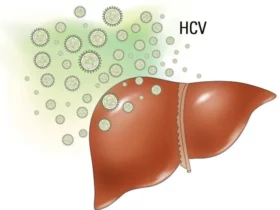

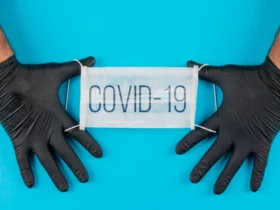

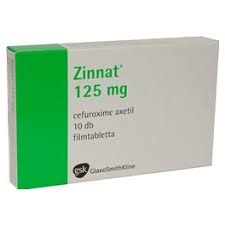
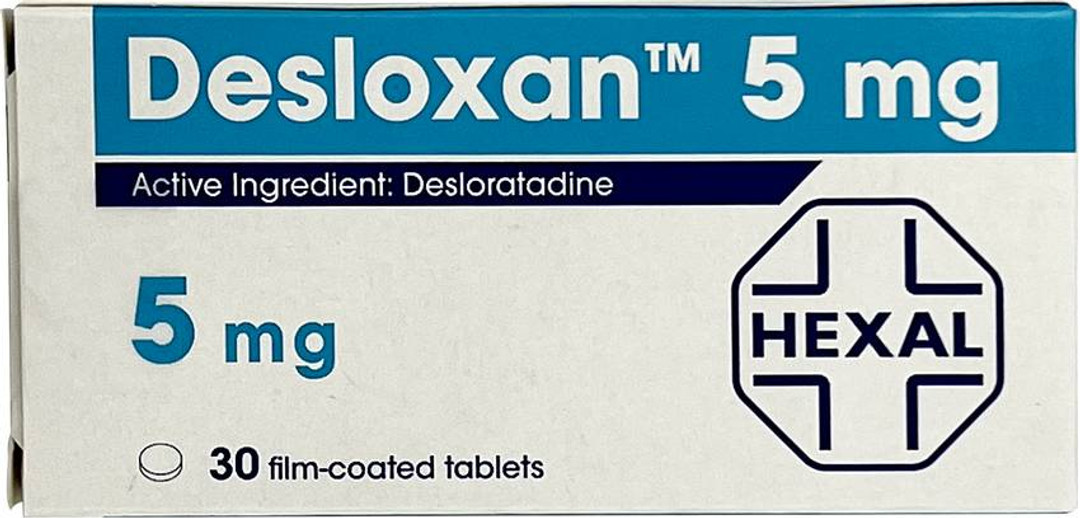
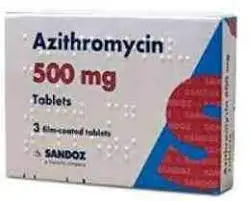





Leave a Reply